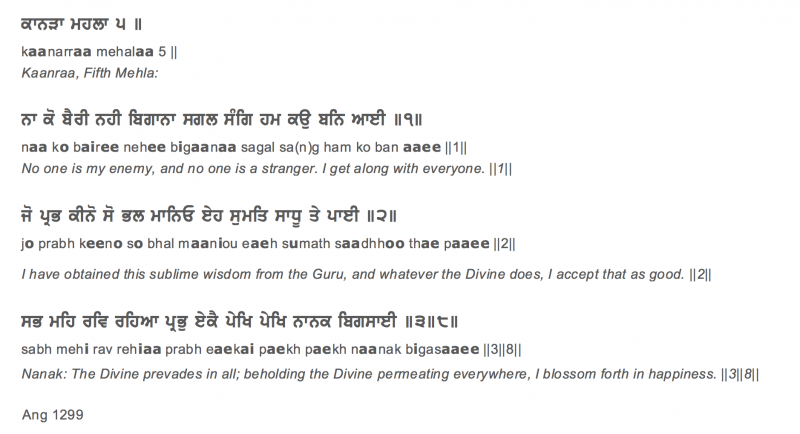by Ravin Kaur
“Hukam Rajai Chalna…..”
Hukam can be understood as “Divine Will”. Haven’t you wondered where we draw the line between Divine Will and free will? Does Divine Will control what happens or does personal action? Are all those engaged in wrongdoing absolved? How about those people who have been treated poorly by others? Are they to accept the mistreatment as Divine Will and not stand up for themselves? Growing up as a Sikh woman, I looked around and saw many sisters, friends, aunties enduring so much sexism and I often wondered about it all. Was it destiny that controlled all?
What is our role? How does hukam apply in everyone’s existence? Where do I find the answers?
In Paul Coelho’s “The Alchemist” I read that “… when you want something, all the universe conspires in helping you to achieve it.” This quote materialized for me. As a woman who was juggling various roles, duties, and responsibilities in life, the Sikh part of me would nudge and tickle my inner most sentiments about my much loved, yet much to unravel spirituality. So many questions, so many thoughts… how do I embark on this journey? AWAT (A Word A Thought from Gurbani) was a gift to me from the universe to take baby steps on the Guru’s path.
While editing the recent Jap Ji Sahib series for AWAT, I got the opportunity to delve into the concept of hukam. Everyone knows the value of Jap Ji Sahib. In our tradition, all are encouraged to teach children this beautiful bani. Guru Nanak bestowed us with simple, yet life-enlightening philosophy in Jap Ji Sahib. I would like to share with you how I understand one of the key messages of Jap Ji Sahib: the law of hukam. What is hukam and how is this concept applicable in our lives? The Jap Ji Sahib series by AWAT surmises this very aptly:
“The first stanza of Jap Ji concluded with the advice – ‘walk in accordance with hukam‘. The second stanza now defines hukam. It is the ‘divine or cosmic order or law’ by which every action and reaction that is happening in this universe is governed. It is synonymous with the laws of nature, the laws of the universe that we must comprehend and accept because they are inviolable. Nothing can happen outside of these laws. These laws apply to every one of us. We reap what we sow,” AWAT.
Two things stood out to me. Firstly, that one needs to “walk in accordance with hukam” which to me means that I have to accept hukam and believe that whatever happens is ordained. Secondly, that divine law governs the universe. Every action and reaction is part of this cosmic law. Ultimately, we reap what we sow. There you go! My inner conversations with myself began.
My mind deliberated upon those questions in the writing of this article. Yes divine will controls what happens and yes, our actions, our vices and our reactions matter too. You may query, “How this is so?” Let me explain my understanding. There is a universal law of goodwill, of nature, and of the greater good of humanity. AWAT also mentions that “the laws of nature, the laws of the universe, we must comprehend and accept because they are inviolable”. Because most of us have failed to see that these fundamentals are “inviolable” is why there is so much sadness, sorrow permeating the cosmos. Gurbani advocates:
This is what gurbani’s message is: the Divine resides in all, and therefore we must treat others as embodiments of the Divine. Have we lived our lives in accordance to this value system? Those who do not treat others right, sow seeds in the universe which will warrant actions and reactions from others in time. Thus violating hukam, one will reap the fruits as per hukam too, be it ripe or rotten fruits. Those who put up with others’ injustice and oppression, will suffer for their weakness unless they stand up for what is right.
Do good and be good. Do wrong to none. Do not let wrong be done to you.
So my friends, walking in accordance with hukam, to me, means to live life in accordance with humanity in general. To earn an honest livelihood, to be mindful and conscious of the Divine, and to share and spread goodwill to all – kirat karni, naam japna, wand chhakna.
Thanks again to AWAT for leading me to a renewed understandings of spirituality. Those who wish to receive the gems of gurbani from AWAT can subscribe here: http://awordathought.com/





